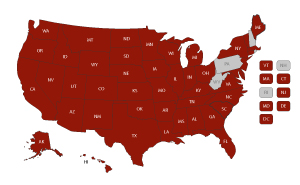Texas Did Not Bill Manufacturers for Some Rebates for Physician-Administered Drugs Dispensed to Enrollees of Medicaid Managed-Care Organizations
Why OIG Did This Review
For a covered outpatient drug to be eligible for Federal Medicaid reimbursement, the manufacturer must enter into a rebate agreement administered by the Centers for Medicare & Medicaid Services (CMS) and pay quarterly rebates to the States. Previous OIG reviews found that States did not always bill and collect all rebates due for drugs administered by physicians to enrollees of Medicaid managed-care organizations (MCOs).
Our objective was to determine whether Texas complied with Federal Medicaid requirements for billing manufacturers for rebates for physician-administered drugs dispensed to MCO enrollees.
How OIG Did This Review
We reviewed physician-administered drug claims that were paid by the MCOs between January 1, 2013, through December 31, 2014 (audit period). We identified drugs that had not been billed by Texas and worked with Texas to calculate the amount of rebates that Texas would have collected from manufacturers had it billed them for the drugs.
What OIG Found
Texas properly billed manufacturers for some rebates for physician-administered drugs. However, Texas did not bill for and collect from manufacturers rebates of $4.4 million ($2.6 million Federal share) for physician-administered drugs. For drugs that were eligible for rebates, Texas did not bill for rebates of $2.2 million (Federal Share) for single-source and top-20 multiple-source physician-administered drugs. For drugs that may have been eligible for rebates, Texas did not bill for rebates of $366,578 (Federal share) for other physician-administered drugs. In addition, Texas did not bill for rebates for 160,579 claim lines for other physician-administered drugs that may have been eligible for rebates. These errors occurred because Texas's internal controls did not always ensure that it billed manufacturers to secure rebates, and Texas did not always collect the utilization data necessary to bill the manufacturers.
What OIG Recommends and Texas Comments
We recommend that Texas (1) bill manufacturers for the $2.2 million (Federal share) in rebates for single-source and top-20 multiple-source physician-administered drugs, and refund the Federal share of rebates collected; (2) work with CMS to determine whether the non-top-20 multiple-source physician-administered drugs were eligible for rebates and, if so bill manufacturers for the $366,578 (Federal share) in rebates, and refund the Federal share of rebates collected; (3) work with CMS to determine whether the other physician-administered drugs, associated with 160,579 claim lines, were eligible for rebates and, if so, determine the rebates due and upon receipt of the rebates refund the Federal share of the rebates collected; and (4) strengthen internal controls to ensure that all eligible physician-administered drugs are billed for rebate.
In written comments on our draft report, Texas did not indicate concurrence or nonconcurrence with our recommendations. Texas stated that it had billed the identified drugs for rebate and would refund the Federal share collected. Texas also determined that some of the other physician-administered drug claims lines were potentially rebatable and would process these claims for rebate. In addition, Texas also outlined steps taken and additional action planned to strengthen internal controls.
We maintain that our recommendations are valid.
Filed under: Centers for Medicare and Medicaid Services

